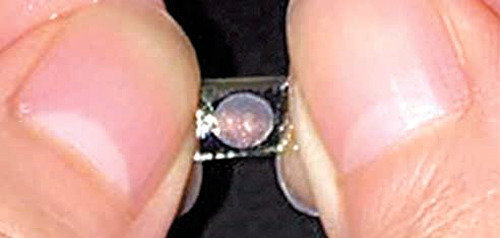Korean scientists develop 'sight improving film' out of cocoon
Korean scientists develop 'sight improving film' out of cocoon
Posted June. 23, 2017 07:13,
Updated June. 23, 2017 07:18

Showing nearly zero resistance to human body, cocoon protein is highlighted as the next new material for human body. However, cocoon proteins were far from commercialization, as it was difficult to process into natural protein to embed various features.
Professor Kim and his team became the first Korean scientists to develop the "nano-optics element," which can reflect light in various directions by processing protein from cocoons. The team mixed special dye with protein solution, and used ray reaction to harden in thin layers. This has enabled them to create a light-reflective film with cocoon protein. The new discovery allows the protein to show great flexibility just like a human skin, and can maintain its original shape even when bent or stretched.
The team expects the film to correct weak visions when implanted into the eyes of patients who have aged optic nerves. "Wild animals can see better than man at dark nights thanks to their eyeball reflectors," Professor Kim explained. "The film is expected to be used to improve visions by implanting inside the eyes of visually impaired patients."
The findings were published on the Proceedings of the National Academy of Sciences of the United States of America ( PNAS) issued on June 13.
enhanced@donga.com







